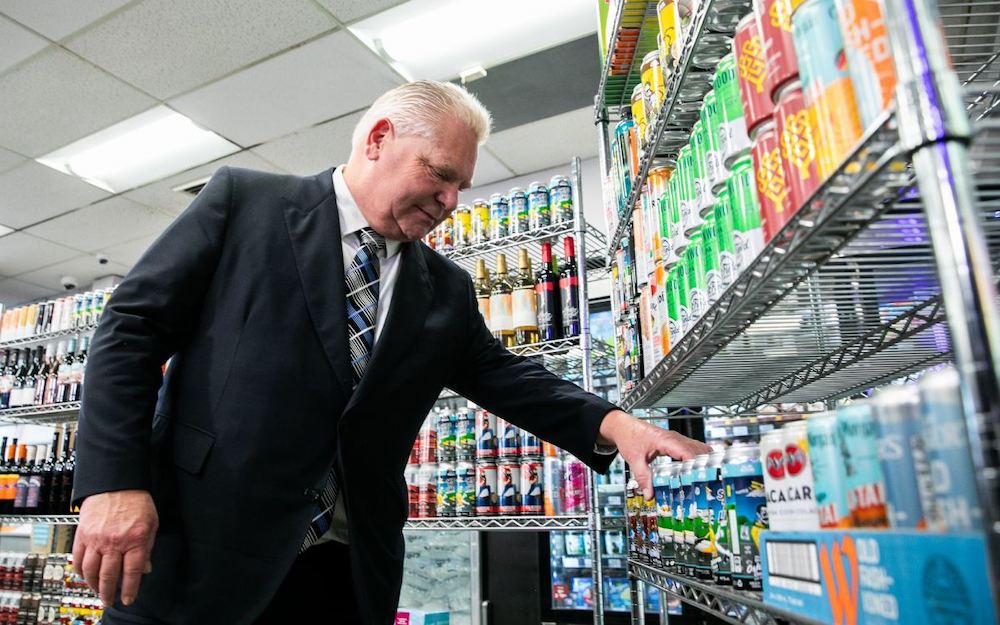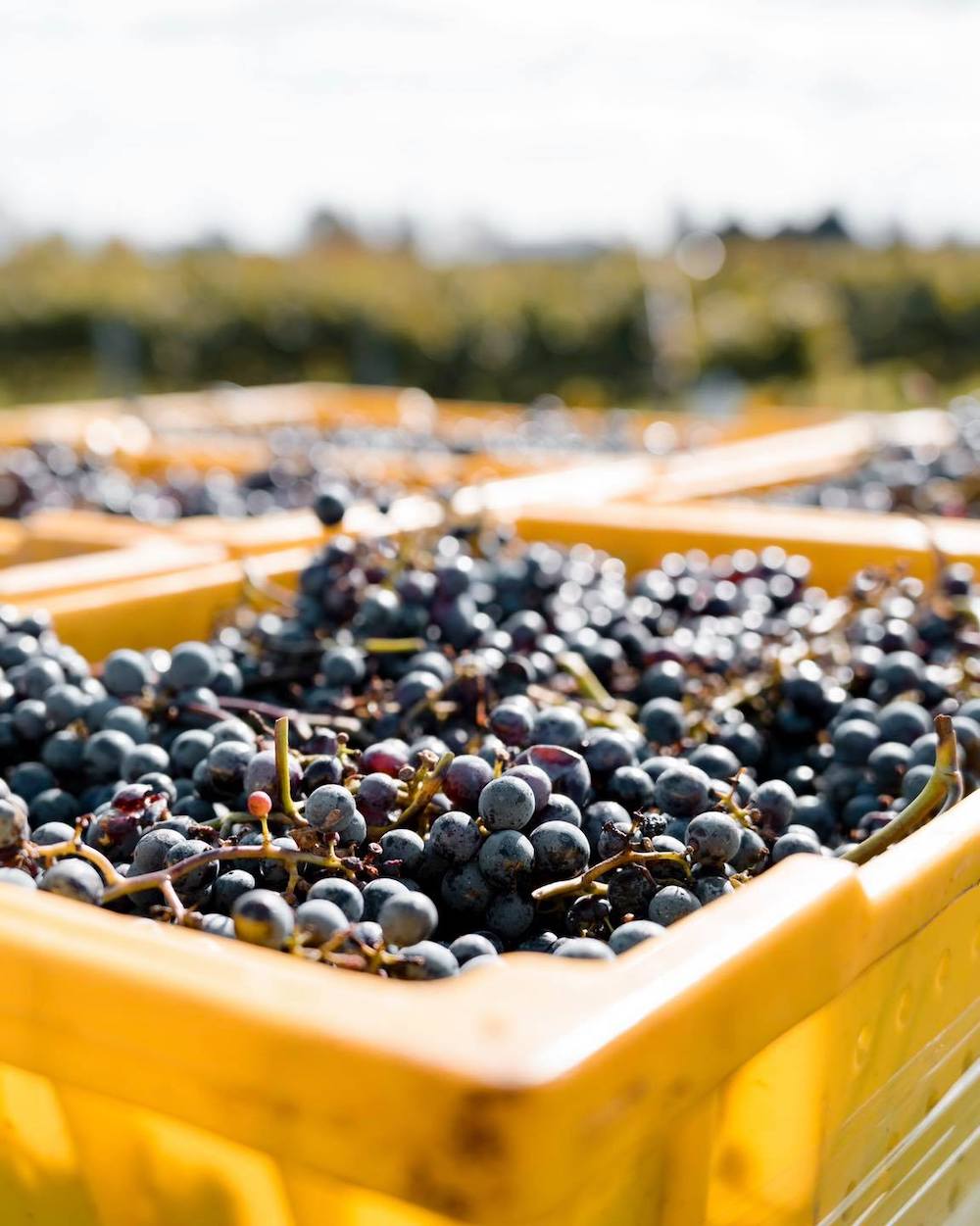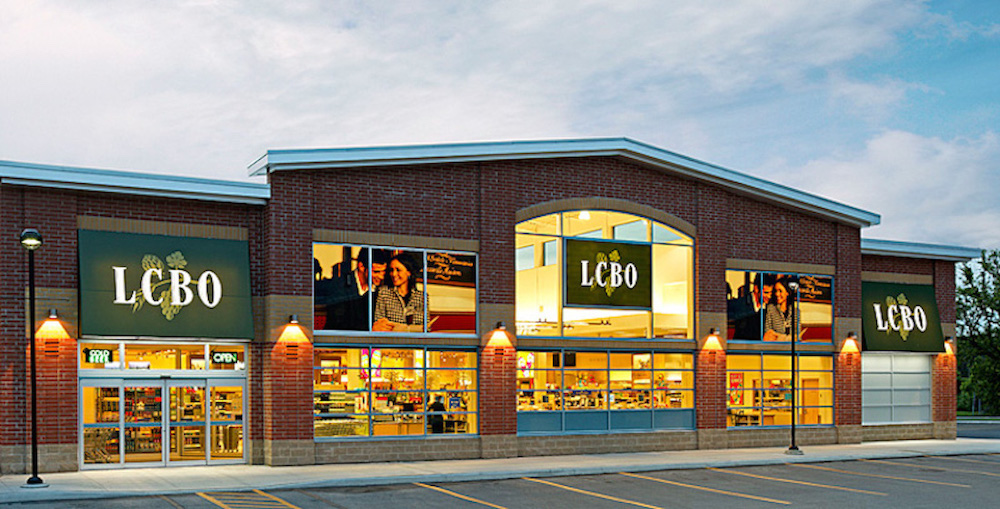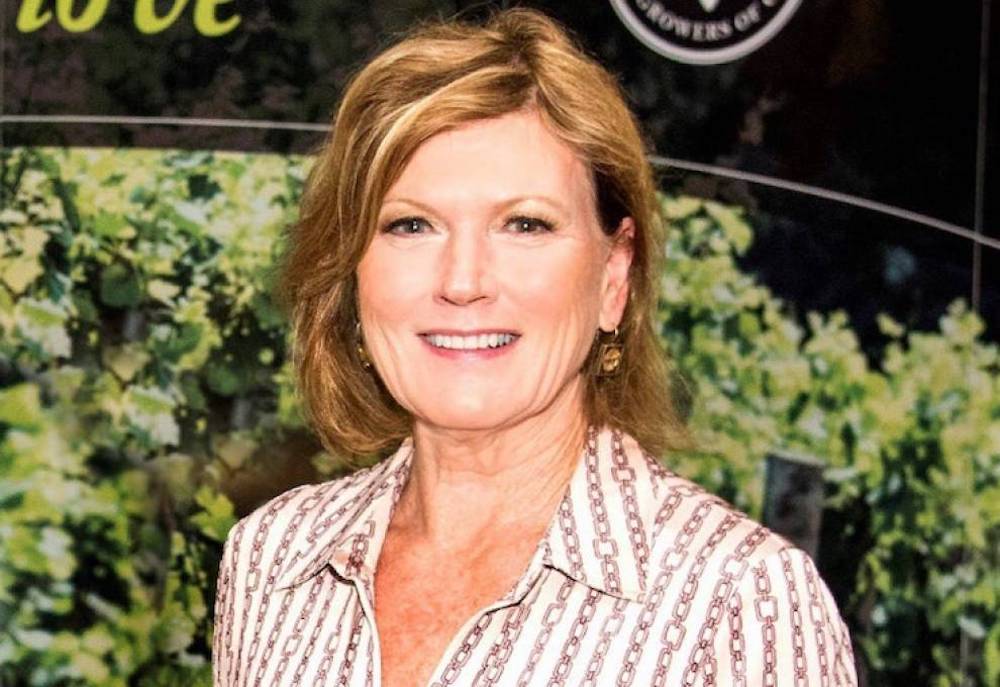By Rick VanSickle
With substantial changes coming to the Ontario wine retailing landscape, announced last week by the province, there is renewed hope for an industry that has been mired in uncertainty.
The sweeping initiatives, some that will be felt immediately and others that will take two years to be implemented when the Beer Store deal finally ends, have been met generally with a positive reaction from various stakeholders.

The Ontario wine industry hit a low point in 2023 with declining market share at the LCBO, a puzzling grape glut and an assault from several sectors, including and not limited to, the surging non-alcohol beverage industry, declining interest for wine from younger consumers and a continued migration to cheaper and plentiful RTD drinks.
Doug Ford’s announcement touched on most of the crucial points a joint task force comprised of the main wine industry associations in Ontario lobbied to fix, but many of them depend on negotiations, more meetings and compromise going forward. There was wide-spread applause after Premier Doug Ford called on legislation that will, if passed, eliminate the unfair 6.1% basic tax on every wine sold at Ontario VQA winery retail stores, which will make Ontario’s tax regime competitive with other provinces, including British Columbia.
Also lauded was the immediate enhancing of the VQA Wine Support Program beginning in 2024-25 for up to five years to 2028-29 to support the growth and sale of Ontario-grown VQA wines.

These two main points will offer financial relief to struggling Ontario wineries barely making a profit in a declining market.
Where things get dicey is with the LCBO and its waning support of VQA wines in the face of expanding budgets from international wine associations pouring thousands and thousands of dollars into promoting their products at the LCBO and Vintages. The Ford plan calls for “supporting local economic development by directing the LCBO to promote and prioritize Ontario-made products, producers and workers by providing more and enhanced programs, promotions and strategies to help local producers grow Ontario product sales.”
What shape that takes is anyone’s guess at this point, but let’s be honest, any move to tip the scales in favour of VQA wines is a move in the right direction.

The VQA market share at the LCBO has steadily fallen over the past several years and now sits at an astonishing low 7% of all wines purchased at the government monopoly. In recent years, 100% Ontario wines have been treated just like international products (and in the case of the 6.1% tax, worse) with no “hometown” favours to offset the giant-sized marketing budgets from the EU, Australia, and California, among others. The Ontario wine industry just can’t compete with those mega-subsidized international wine regions. There just isn’t that kind of marketing money in the budget when matched against the EU, Australia, California and even New Zealand. Just look at the shelves, promotions and product placements at LCBO and Vintages stores and it becomes crystal clear there is little support for VQA wines.
I’m old enough to remember when the LCBO worked together with the local wine community and played an active role in promoting Ontario wines. The LCBO took pride in supporting and growing the market share of 100% Ontario wines, and it showed when you walked into a store and saw signage or when you opened up the Food & Drink magazine and saw full-page ads promoting local wines. All that vanished over the years, contributing to the current single-digit market share for VQA wines, the lowest in decades and maybe ever. No one quite knows why the erosion for local support happened, but it’s obvious that it has contributed greatly to the disappointing market share 100% Ontario wines have today.

The time is ripe to put VQA wines back on track. It’s unlikely that opening up wine retail to wide-spread grocery and convenience stores will move the needle for most VQA wineries in Ontario. Lower priced international wines and Canadian blends will do the heavy lifting at most of these new kiosks, so why wouldn’t LCBO/Vintages stores look to VQA wines and start playing a pivotal role in their success, just like the good old days? Why continue to allow big international brands to dominate the shelves, promotions and advertising in Vintages magazines and the monopoly’s glossy Food and Drink Magazine?
It makes good sense to turn their attention back to wines grown in their own backyard. Let product consultants go back to being product consultants (they are very good at what they do, and have always proudly supported VQA wines, in my experience). Let individual store managers make buying decisions for their stores, after all, they know their customers best.
Wines in Niagara reached out to a cross section of Ontario wineries, big and small, growers and even local bottle shops to ask a simple question. Will the Ford government’s announced plans move the needle for you? Here is what they said, in their own words.
From the winery perspective

Harald Thiel, owner/vigneron of Hidden Bench Estate Winery (Niagara)
“I think these are very positive changes and are long overdue. Like all policy decisions the devil will be in the detail of implementation and execution. This will be particularly important at the LCBO, particularly in Vintages for premium Ontario craft producers. The 5-year commitment to the VQA support and WMAO funding will also permit producers to plan longer term.”
Del Rollo, vice president, corporate affairs, Arterra Wines Canada
(Last Thursday) was definitely one of the best days the Ontario wine industry has had in several decades. The list of policy changes are the first steps in allowing Ontario wineries and grape growers to grow and thrive. As you know, Ontario is the most taxed wine industry in the entire world. Many of these changes announced (last Thursday) will have a direct positive impact on our business and help all wineries realize the full potential of our industry.
The Ontario wine industry is already responsible for an economic impact of $5.49 billion, generates over $900 million in taxes and mark-ups and supports over 22,000 jobs.
Our industry is now poised like never before to take advantage of the opportunity ahead of us and realize a world-class wine, tourism, culture, and agricultural economy that creates jobs throughout Ontario’s wine country. We certainly have more work to do as we face the new realities of retail modernization, but we are confident that the positive signals of this announcement and the collaborative approach with government will help ensure the future success of Ontario’s existing wine retail stores.

Adam Lowy, owner/vigneron of Cloudsley Cellars (Niagara)
“I think these changes do move the needle for us providing they all are implemented. Specifically:
• The elimination of the 6.1% tax is a great step and will help a lot in what is a low margin business. Let’s hope it passes through the legislature;
• The continuation of the VQA support program has made the difference between being profitable or not for many wineries so it’s great to see a commitment to continue this for another five years;
• The least quantifiable component of this announcement is the directive to the LCBO to promote and prioritize Ontario wines. This could be a real difference maker if the LCBO really commits to it. There are examples elsewhere of this type of effort having a tremendous impact in growing market share for local wineries. Let’s hope the government backs this up with some real pressure on the LCBO and that, in turn, the LCBO responds.
• As for the main headline of a wider and more open retail environment, this is a good thing in principle but will likely benefit large producers offering cheaper wines more than smaller, higher end wineries. This will, however, lead to more specialty wine shops, which is a great change for the industry and the consumer.
Andre Gagne, owner Last House Vineyard (Prince Edward County)
I will not pretend to be a policy expert, but the overall beer and wine moves feel like “baby steps” in the right direction. There is much to do to fill in the blanks over the next two years. I am hopeful that there is a phase two one day which relooks at the entire LCBO purpose.
For wineries specifically, I think that the commitment to promote VQA is positive as is the potential to remove the 6.1% (tax). Will it apply only to winery retail sales or will DSD to licensees also be exempt? Again, the devil will be in the details.
On a side note, I sure hope the International (Domestic) Blends get looked at and questioned, reduced, eliminated. Not likely given the players involved.
Richard Linley, president of the Ontario Craft Wineries
“For decades, Ontario wineries have faced disadvantages that other wine producing regions do not face in their home markets. Today’s announcement by the Ontario government recognizes what we have long said: wine regions are catalysts for economic growth. Every dollar spent on wine grown in Ontario is a dollar going back into the economic growth of Ontario, through agricultural jobs, small business growth and agri-tourism. The government’s plan will put us back on track for not only sustaining but growing our agricultural businesses for generations to come.”
From the growers’ perspective

Paul Franciosa, co-owner of the Grimsby Hillside Vineyard
From our perspective, it’s not entirely clear that there will be much in the way of meaningful impacts on our business as a premium quality grape grower. There might be some impacts, but my suspicion at this point is that they will likely be minor. I will caveat all this by saying I’m not the most knowledgeable person when it comes to wine retail regulations, so I’m reserving the right to change my mind and open to having my understanding corrected if I’m missing something here.
Continued support for winery export initiatives via the extended VQA Wine Support program might facilitate new opportunities for some of our customers in other markets, which could have trickle down benefits for us as a grower if our customers are able to have better support in developing international demand for their wines. The other change that might have an impact is the elimination of the 6.1% tax for on-site winery sales; however, it’s not yet clear who will benefit from this tax policy change: Will wineries cut prices, passing along the benefit to consumers? Will wineries try and pocket the entire amount of the tax savings? Will lower taxes mean that they will be able to afford to pay more for grapes? It will be interesting to see how the tax savings ultimately get allocated among the various stakeholder groups. It will also be interesting to see how the tax policy change impacts negotiations between the GGO and the winery representatives. Wineries rely on on-site sales to differing degrees, so assessing the impact of the change in a broad manner that allows informing negotiating positions will be difficult, I suspect.
As for the main policy change of liberalization of wine sales, I don’t expect that it will have a meaningful impact on our core customer base. Allowing wine sales in convenience, grocery and big box channels doesn’t seem to be opening up the best suited sales channels for the majority of our customers. I believe that our customers’ wines are best represented in an environment where knowledgeable and passionate sales staff can speak intelligently about their products and engage with customers to share the stories of the people and the wines. That’s not happening at a gas station or grocery store, even if there’s space mandated for craft wineries.
Personally, I think it’s a bit disappointing that there wasn’t greater liberalization permitted in the changes announced. I think we could benefit from more entrepreneurship in wine retail, much in the same way that entrepreneurship at the winery level drives the industry. It’s personal passion, knowledge, and the opportunity to try and make a living doing something you love that create the foundation for a premium wine industry in Ontario. For our premium wine industry to succeed locally, we don’t just need more places where wine is sold, but more places where customers can learn about wine, be exposed to new things, and develop relationships with people that care about and curate their own inventory. The bottle shop changes were a positive move towards engaged and entrepreneurial wine retail, but I suspect that more needs to be done. We don’t believe our grapes are a commodity; we suspect our customers don’t believe their wines are a commodity; and so, facilitating changes where more wine can be sold as a commodity doesn’t seem likely to move the needle for us.
All that said, I don’t want to come across as negative on or indifferent to the recent changes. I think they do represent a move in the right direction and represent sensible changes to access that will benefit some within our local industry, but I suspect that the impact on our business will be relatively limited.
Kevin Watson, KJ Watson Farms Ltd.
While there are no guarantees that Ontario wineries will sell more wine and therefore buy more grapes, there is a financial incentive to do so. Any businessperson will see this as an opportunity and will hopefully follow the dollars. From my perspective it is a pull through strategy and very well needed.

Debbie Zimmerman, CEO of the Grape Growers of Ontario
The Grape Growers of Ontario extends our heartfelt appreciation to the Government of Ontario for its visionary approach to help Ontario’s grape and wine industry thrive and grow into its true potential. The decision to extend the VQA support program for five years is a game-changer. It not only provides stability for both farmers and wineries, but it will also fuel growth. With more shelf space and increased points of sale, Ontario wineries can confidently showcase their exceptional 100% Ontario VQA wines. This shift aligns perfectly with our commitment to authenticity and quality. The elimination of the 6.1% Winery Retail Tax will invigorate Ontario wineries and make it possible for them reinvest in their businesses and drive innovation. We anticipate increased capital flow, expanded facilities, and exciting new ventures. It’s a win-win for both the industry and wine enthusiasts. Together, we toast to a thriving grape and wine landscape in Ontario.
From the bottle shop perspective

Robbie Raskin, owner of Archives Wine and Spirits Merchants (St. Catharines)
Speaking as an adult in a developed country in 2023, I think the new changes are great. As a bottle shop owner, I don’t think it’ll help our sector a great deal. Without changes on the distribution side, particularly to the massive markups imposed by the LCBO, which can exceed 70% of a bottle’s price, there will never be a real business case for selling anything other than low-cost/high-volume Niagara wine. So, I don’t expect we’ll see much beyond the usual LCBO General List wines at the local Esso any time soon. Still, a step in the right direction for the province.
Something I’ll be looking for is the absurd food-with-takeaway-alcohol requirement to drop off for bottle shops. Now that pretty much any store will be able to sell alcohol to go, it’ll be even more absurd to force bottle shops to act as restaurants.
Bottle shops have also been operating in an unfortunate climate of fear with frequent arbitrary enforcement from liquor inspectors; we just witnessed two in Ottawa get shut down for operating as grocery stores, even though they don’t meet the current definition of grocery store under liquor laws. At Archives and other shops, we’re constantly getting plainclothes inspectors dropping in and trying to enforce rules that no one really knows. So, I’m hoping that will change now that we’ve finally reached some level of private retail.
On the other hand, we’re now heading toward a system where we have bottle shops that can sell spirits (as long as you take the 25-cent piece of chocolate with your order), but we’re hearing that the new retailers will be limited to lower ABV products. So, there is a double standard coming into place.
Still, I’m pessimistic about this if the markups aren’t addressed. Because we’re just going to see the same situation as we’ve got at grocery stores now, where the margins don’t allow for profit. Even with the freedom to set prices, if the new retailers are competing against the LCBO, they’re not going to be able to mark up to a profitable amount.
So, knowing the devil will be in the details, I suspect these changes will create convenient depanneurs for quickly grabbing a case of Molson or a cheapish bottle of Peller wine, but probably won’t change the retail landscape for smaller producers all that much. I’m still very pleased as an Ontarian, but I hope this is just one step toward dismantling what will remain an inferior retail environment.








Comment here